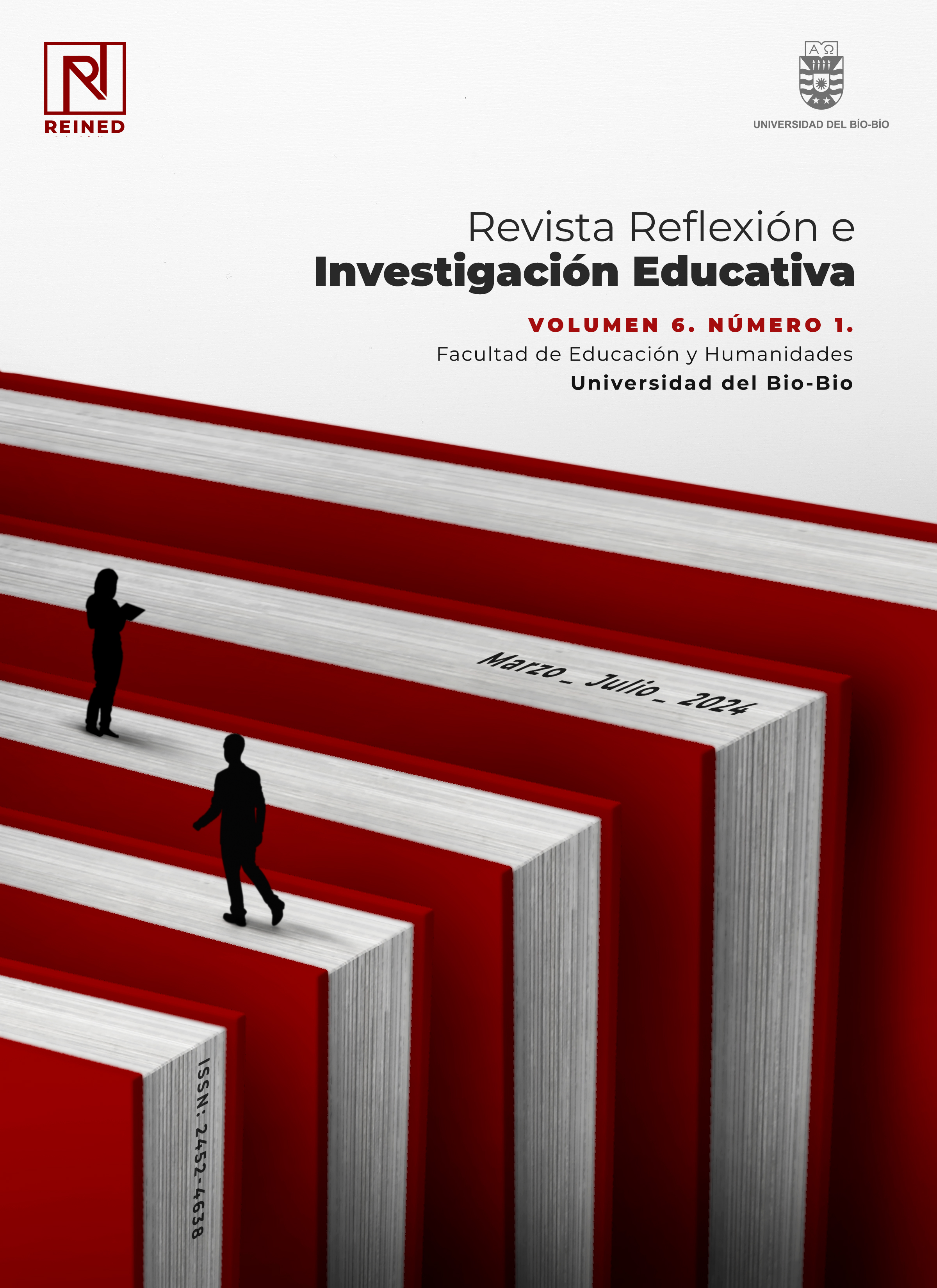CONCEPTUAL AND HISTORICAL REFLECTION ON PUBLIC AND EDUCATIONAL POLICIES: ACTIONS AND DIRECTIONS FROM A CRITICAL POINT OF VIEW
Main Article Content
Abstract
Public and educational policies are more complex concepts than just state guidelines. We can deconstruct our reality philosophically, analyzing the terms since ancient Greece and their evolutionary characteristics to understand the present. In a world of systems and power, an approach that analyzes the structures and intentions of the State emerges. Thus, from a critical structuralist approach, this essay aims to reflect on public and educational policies by understanding their historical context, their understanding as a socio-cultural phenomenon and the relevance it has had for citizenship, subtly highlighting the situation in Chile since the implementation of the neoliberal model. We can establish that man since ancient Greece had the need to educate himself in society, advancing to institutionalize the idea of the State during the modern era. Understanding it through the structure allows us to reflect on neoliberalism - as a preponderant political and economic system - and the way it has affected or acted on education. Education being an inherent part of human dignity given by reason.
Article Details
References
Aguilar, L. (2007). El aporte de la Política Pública y de la Nueva Gestión Pública a la gobernanza. Revista del clad Reforma y Democracia, (39), 5-32. http://www.redalyc.org/articulo.oa?id=357533693001
Althusser, L. (2003). Ideología y aparatos ideológicos del Estado. Fondo de Cultura Económica. https://lobosuelto.com/wp-content/uploads/2018/10/Althusser-L.-Ideolog%C3%ADa-y-aparatos-ideol%C3%B3gicos-de-estado.-Freud-y-Lacan-1970-ed.-Nueva-Visi%C3%B3n-1974.pdf
Aziz, C. (2018). Evolución e implementación de las políticas educativas en Chile. Nota técnica Nº 2. LÍDERES EDUCATIVOS, Centro de Liderazgo.
Bobbio N., Matteucci N. y Pasquino G, (1995). Diccionario de política. México: Siglo XXI editores.
Cadenas, H. (2012). El sistema de la estructura: Estructuralismo y teoría de sistemas sociales. Cinta de moebio, (45), 204-214. DOI: 10.4067/S0717-554X2012000300002 DOI: https://doi.org/10.4067/S0717-554X2012000300002
Carriel, M. y Gutiérrez, N. (2005). Consideraciones políticas y sociales del proyecto neoliberal en Chile: 1978-1990. Sociedad Hoy, (8-9), 27-37. http://www.redalyc.org/articulo.oa?id=90221948003
Ferreira, M. y Gutiérrez, N. (2005). Consideraciones políticas y sociales del proyecto neoliberal en Chile: 1978-1990. Sociedad Hoy, (8-9), 27-37. http://www.redalyc.org/articulo.oa?id=90221948003
Foucault, M. (2013). El gobierno de sí y de los otros. Curso (1982-1983). Akal.
Fragoso, E. (2006). Concepto de política y vida cotidiana. Revista Xihmai, 1(1), 1-18. https://dialnet.unirioja.es/servlet/articulo?codigo=4953719 DOI: https://doi.org/10.37646/xihmai.v1i2.21
Gaudichaud, F. (2015). La vía chilena al neoliberalismo: miradas cruzadas sobre un país laboratorio. Revista Divergencia, 5(6), 13-28. https://www.revistadivergencia.cl/wp-content/uploads/2018/11/01.pdf
Gramsci. A. (1985). La alternativa pedagógica. Hogar del Libro.
Guy, A. (1990). La pedagogía del siglo XVII hasta nuestros días. Fondo de Cultura Económica.
Jarpa, C. (2015). Función política de la educación en el pensamiento de Antonio Gramsci. Cinta de moebio, (53), 124-134. DOI: 10.4067/S0717-554X2015000200002 DOI: https://doi.org/10.4067/S0717-554X2015000200002
Lahera, E. (2008). Introducción a las políticas públicas. Santiago, Chile: Fondo de Cultura Económica.
Mainardes, J. (2015). Reflexiones sobre el objeto de estudio de la política educativa. C. Tello (Comp.), Los objetos de estudio em política educativa. Hacia una caracterización del campo teórico, 25-42. Libro digital EPUB.
Martínez, F. (2018). Reflexiones sobre las políticas educativas. Revista latinoamericana de estudios educativos, 48(2), 71-96. DOI: 10.48102/rlee.2018.48.2.47 DOI: https://doi.org/10.48102/rlee.2018.48.2.47
Medina, R. (coord.) (1994) La política educativa en España: Líneas actuales y prospectiva, en COLOM, A. J. (ed.). Política y planificación educativa (Sevilla, Preu Spínola), pp. 123-146. https://www.jstor.org/stable/23766277
Meny, Y., Thoenig, J. C., y Morata, F. (1992). Las políticas públicas.
Real Academia Española. Política. https://www.rae.es/desen/pol%C3%ADtica
Rodríguez, G., Gil, J. y García, E. (1999). Metodología de la investigación cualitativa. Málaga: Aljibe.
Ruffinelli, A. (2017). Gubernamentalidad, Pedagogía Neutra y (Des)Profesionalización Docente. Educacao y sociedade, 38(138), 191-206. DOI: 10.1590/es0101-73302016139074 DOI: https://doi.org/10.1590/es0101-73302016139074
Subirats, J. (2001). El análisis de las políticas públicas. Gaceta sanitaria, 15(3), 259-264. DOI: https://doi.org/10.1016/S0213-9111(01)71557-9
Tirant lo Blanch. (2019). ¿Sabes de dónde proviene y qué significa la palabra "Política"? https://tirant.com/noticias-tirant/noticia-sabes-de-donde-proviene-y-que-significa-la-palabra-politica/
Turra, O. y Valdés, M. (2017). Racionalidades curriculares en la formación del profesorado de historia en Chile. Diálogo andino, (53), 23-32. DOI: 10.4067/S0719-26812017000200023 DOI: https://doi.org/10.4067/S0719-26812017000200023
Urabayen, J. y León, J. (2018). La gubernamentalidad biopolítica: de la sociedad de control estatal al liberalismo. Co-herencia, 15(29), 67-92. DOI: 10.17230/co-herencia.15.29.3 DOI: https://doi.org/10.17230/co-herencia.15.29.3
Valenti, G., y Flores, U. (2009). Ciencias sociales y políticas públicas. Revista Mexicana de Sociología, 71(SPE), 167-191. https://www.scielo.org.mx/pdf/rms/v71nspe/v71nspea7.pdf
Weber, M. (2021). El político y el científico (Vol. 1). Comercial Grupo ANAYA, SA.

